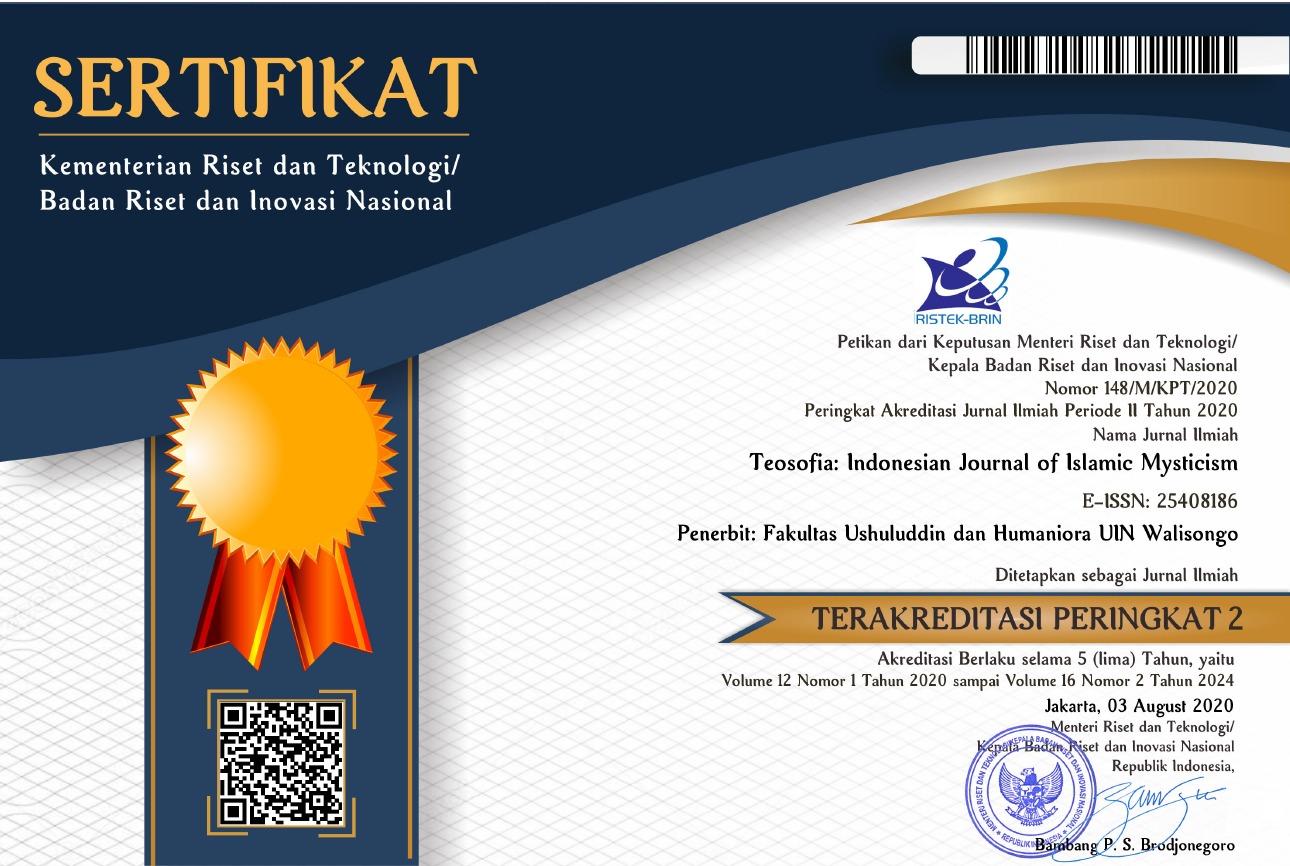TOWARD AN OBJECTIVE ISLAMIC STUDIES
DOI:
https://doi.org/10.21580/tos.v5i1.1713Keywords:
Insider, Outsider, Islamic Studies, ObjectivityAbstract
One of the issues that haunts contemporary Muslim scholarship is the objectivity of the study of Islamic Studies which they strive for. Among them are groups called insiders and outsiders. Insiders as Islamic reviewers come from Muslims, while outsiders are reviewers of non-Muslims who are often called orientalists. If insiders are considered to be less objective because of their ideological interests as the adherents of Islam, the outsider's unobjectivity is due to their propaganda-oriented study. The problem eventually leads to the solutioncoming upfrom some prominent scholars’ ideas in Islamic Studies, among them are Kim Knot, Abdur Rouf, and Fazlur Rahman. Kim Knot produced a Spatial theory, Abdur Rauf initiated an Empatic Understanding, while Fazlur Rahman formulated objectivity theories. Those three try to make efforts to bridge between insider and outsider so that each can do an objective study, which is not ideologically-subjective biased. This is called intersubjectivity in religious studies.
Downloads
References
Abdullah, Amin dkk, Antologi Studi Islam: Teori dan Metodologi, Yogyakarta: Sunan Kalijaga Press, 2000.
Fanani, Muhyar, Metode Studi Islam, Yogyakarta: Pustaka Pelajar, 2010.
Kim, Knott, Insider/Outsider Perspectives; The Routledge Companion to the Study of Religion, Edited by John R. Hinnels, London: Routledge Taylor and Fancis Group, 2005.
__________, Spatial Theory and Method For the Study of Religion, The Finish Sosiety for the Study of Relegion, Temenos, Volume 41 No. 2, 2005.
Martin, Richard C., Approaches to Islam in Religious Studies, terj. Zakiyuddin Baidhawy, Pendekatan Kajian Islam dalam Studi Agama. Yogyakarta: Muhammadiyah University, 2001.
_______________, Approaches to Islam in Religious Studies, trans. Zakiyuddin Baidhawy, Pendekatan Kajian Islam dalam Studi Agama, Yogyakarta: Muhammadiyah University, 2001.
Nasution, Harun, Islam Ditinjau Dari BeberapaAspek, Jakarta: Bulan Bintang, 1985.
Nugroho, Heru, Menumbuhkan Ide-Ide Kritis, Yogyakarta: Pustaka Pelajar, 2003.
Rahman, Fazlur, Hermeneutika Al-Qur’an FazlurRahman, Yogyakarta: Jalasutra, 2007.
Downloads
Published
How to Cite
Issue
Section
License
Copyright
The copyright of the received article shall be assigned to the journal as the publisher of the journal. The intended copyright includes the right to publish the article in various forms (including reprints). The journal maintains the publishing rights to the published articles. Therefore, the author must submit a statement of the Copyright Transfer Agreement.*)
Licensing

This work is licensed under a Creative Commons Attribution-ShareAlike 4.0 International License.
In line with the license, authors are allowed to share and adapt the material. In addition, the material must be given appropriate credit, provided with a link to the license, and indicated if changes were made. If authors remix, transform or build upon the material, authors must distribute their contributions under the same license as the original.
_______
*) Authors whose articles are accepted for publication will receive confirmation via email and send a Copyright Transfer Agreement.









